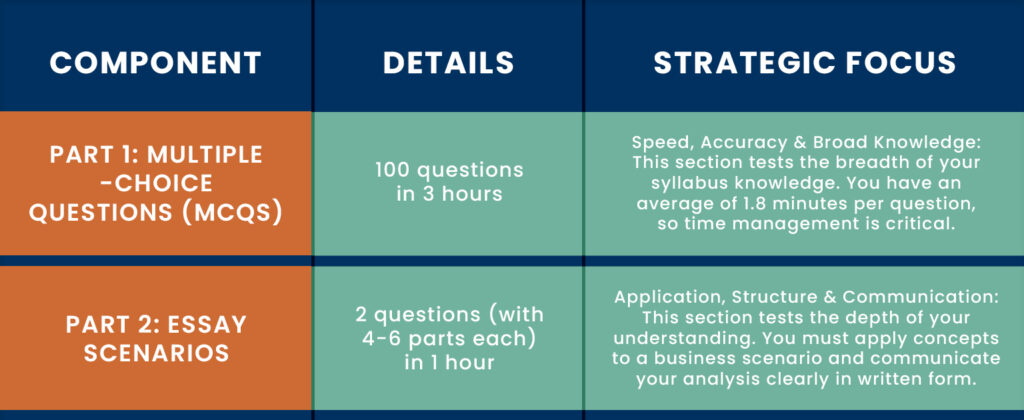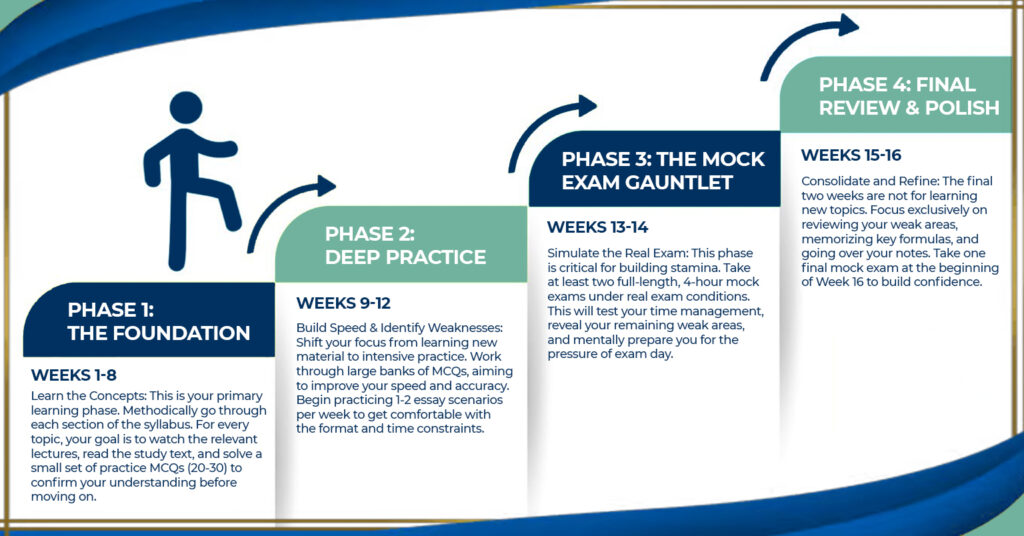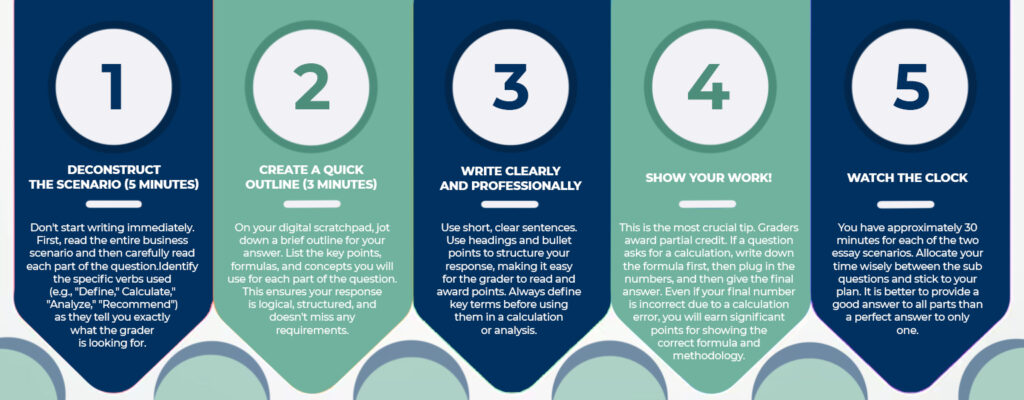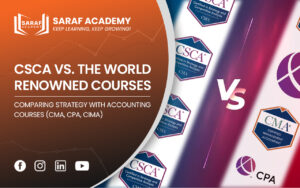Want To Crack The CMA US Exam In 2026 : Here is the Insider’s Guide To Passing The CMA US In Your First Attempt.

1. Introduction: Passing the CMA US Isn’t Luck, It’s a Strategy
Every year, thousands of ambitious finance professionals attempt the rigorous CMA (Certified Management Accountant) exam. Many hope to pass. The successful ones, however, don’t rely on hope-they rely on a strategy.
Passing the CMA Us exam on your first attempt isn’t about being a genius or getting lucky with the questions. It’s about having a deliberate, proven plan that covers not just what to study, but how to study, how to manage your time, and how to conquer the mental challenges of this demanding journey.
This is not just another list of generic CMA US exam tips. This is your strategic blueprint.
Over the next few sections, we will guide you through a battle-tested framework for success. We’ll start by building the winner’s mindset, deconstruct the exam pattern to reveal its secrets, and provide you with a step-by-step CMA US study plan to guide your preparation. Forget luck. Let’s start planning for your success.
2. The Winner’s Mindset: Your Most Powerful Study Tool
Before you open a single book, your preparation for the CMA exam begins in your mind. The biggest hurdle on this journey is often not the complexity of the syllabus, but the challenge of maintaining focus and motivation over several months. Adopting a winner’s mindset from day one is your most powerful asset.
Here’s how to build it:

3. Deconstructing the Beast: A Deep Dive into the CMA Exam Pattern
To defeat any challenge, you must first understand its structure. The CMA US exam is a four-hour test, but it’s divided into two very different sections. Mastering both is essential for success, and knowing the rules of the game gives you a significant advantage.
Here is a breakdown of the CMA US exam pattern:

The Critical 50% MCQ Gateway
Here is a crucial rule you must know: you must score at least 50% on the MCQ section to be eligible for the essay section. If you fail to meet this threshold, your exam ends after three hours, and your essays will not be graded.
This rule highlights the importance of a balanced study approach. While the essays require deep knowledge, you cannot neglect the broad syllabus coverage needed to quickly and accurately answer the 100 MCQs. Your first goal is to conquer the MCQs to unlock the path to the essays.
4. Your 16-Week Strategic Study Blueprint for CMA Success
A goal without a plan is just a wish. To conquer the CMA US exam, you need a structured, realistic CMA US study plan that guides you from day one to exam day. This 16-week blueprint is designed for working professionals to master one part of the CMA exam without burning out.
This plan is divided into four distinct phases, each with a specific objective.

5. Mastering the MCQs: The Art of Answering, Not Just Knowing
The 100 multiple-choice questions in the CMA exam are a test of speed, accuracy, and broad syllabus knowledge. To score well, you need more than just knowledge; you need a set of proven tactics.
Here are the essential CMA MCQ tips to master this section:
- Respect the 1.8-Minute Rule: With 100 questions in 180 minutes, you have an average of 1.8 minutes (108 seconds) per question. Be strict with your time. If you’re stuck on a question for more than two minutes, make an educated guess, flag it for review, and move on. Do not let one difficult question derail your entire exam.
- Use the Process of Elimination: Often, you can find the right answer by identifying the wrong ones. For every question, actively look for the two most obviously incorrect options. Eliminating them immediately increases your chances of selecting the correct answer from the remaining two from 50% to 100%.
- Deconstruct the Question First: Before you even look at the options, read the question carefully. Identify keywords, look for absolute qualifiers like “always,” “never,” or “except,” and be crystal clear about what is being asked. This prevents you from being tricked by tempting but incorrect answer choices.
- Never Leave a Question Unanswered: There is no negative marking in the CMA exam. An unanswered question is a guaranteed zero. A guessed answer has at least a 25% chance of being correct. Always make an educated guess if you are unsure.
6. Cracking the Code of CMA Essays: From Blank Page to Full Marks
The essay section, worth 50% of your total score, is where you demonstrate your ability to apply knowledge to real-world business scenarios. Many well-prepared candidates lose marks here not because of a lack of knowledge, but because of poor structure and communication.
Follow this step-by-step guide to effectively answer CMA US essay questions:

7. The Work-Life-CMA Balance: A Realistic Guide for Working Professionals
The single biggest challenge for most CMA US for working professionals isn’t the difficulty of the syllabus; it’s finding the time and energy to study while managing a demanding job, family, and personal life. Success is not about finding more hours in the day, but about being smarter with the hours you have.
Here is a realistic guide to creating a sustainable CMA US study schedule:
- Schedule Your Study Like a Business Meeting: Don’t just “hope” to find time to study. At the start of each week, block out specific, non-negotiable time slots in your calendar. Treat these appointments with the same seriousness as a meeting with your boss. This discipline is the foundation of your success.
- Embrace “Micro-Studying”: Your daily commute, lunch break, or the 15 minutes while waiting for a meeting are golden opportunities. Use these small pockets of time to review flashcards on your phone, solve a few MCQs, or watch a short concept video. These micro-sessions add up and keep the material fresh in your mind.
- Communicate with Your Support System: Be open with your family, friends, and even your employer about your CMA journey. Let them know when your dedicated study times are. This manages expectations, reduces interruptions, and builds a support system that understands and respects your commitment.
- Protect Your Weekends (Wisely): Weekends are crucial for deep study and mock exams. Dedicate one solid block of 3-4 hours to intensive preparation. However, it’s equally important to schedule protected time for rest, relaxation, and family. Avoiding burnout is a key strategy for this marathon.
- Don’t Sacrifice Sleep: It can be tempting to pull an all-nighter, but it’s the most counterproductive thing you can do. Sleep is when your brain consolidates what you’ve learned. A well-rested mind will recall information far more effectively than an exhausted one.
8. The Final 15 Days: Your Ultimate Pre-Exam Checklist
The last two weeks before your exam are not for learning new material. This is your final sprint, where strategy, revision, and mental preparation are everything. Follow this checklist to ensure you walk into the exam hall with maximum confidence.
Weeks 1-2 Before the Exam:
- Take Your Final Mock Exam: At the very beginning of this period, take one last full-length, timed mock exam. The goal is not to get a perfect score, but to have one final simulation of the 4-hour experience and identify any remaining weak spots.
- Shift to Targeted Revision: After your mock, stop trying to cover the entire syllabus. Focus exclusively on the topics and question types you struggled with. Your goal is to turn your weaknesses into strengths.
- Create a “Brain Dump” Sheet: On a single sheet of paper, write down every critical formula, key definition, and important concept. Review this sheet every morning and every evening. This active recall will solidify the information in your memory.
The Day Before the Exam:
- Stop Studying by the Afternoon: The hard work is done. Lightly review your “brain dump” sheet in the morning, and then put your books away. Your brain needs time to rest and consolidate.
- Prepare Your Logistics: Confirm the location and time of your exam. Pack your bag with your approved ID, calculator, and anything else you need. Plan your travel route.
- Relax and Recharge: Do something you enjoy that is completely unrelated to the CMA. Watch a movie, go for a walk, or spend time with family. Get a full night of quality sleep.
Exam Day Morning:
- Avoid Last-Minute Cramming: Do not try to learn anything new. A quick glance at your formula sheet is more than enough.
- Eat a Good Breakfast: Fuel your brain with a balanced meal. Avoid overly heavy foods or excessive caffeine, which can lead to a crash.
- Arrive Early: Plan to arrive at the test center at least 30-45 minutes before your scheduled time. This eliminates any stress from traffic or finding the location and gives you time to calmly check in.
9. Why Your First Attempt is Your Best Attempt
It can be tempting to view your first CMA US exam as a “trial run.” This is a costly and demoralizing mindset. Strategically, you should treat your first attempt as your only attempt. Putting in the maximum effort to pass the first time is the most efficient path to certification.
Here’s why delaying success is so expensive:
- The Financial Cost : Failing an exam part means you have to pay the substantial IMA exam fee all over again. This can add hundreds of dollars to your total investment. The financial sting of a re-sit is a powerful motivator to get it right the first time.
- The Time Cost : A failed attempt means your study plan is extended by another three to six months. This is time you could have spent enjoying your freedom or leveraging your new credential for a promotion or a new job. The momentum you’ve built is lost, and you have to start the difficult process of re-studying.
- The Psychological Cost : This is the highest cost of all. Facing a “FAIL” on your score report can be incredibly demotivating. The self-doubt and burnout that follow can make studying for a second attempt feel much harder than the first.
- The “Peak Knowledge” Principle: Your knowledge, focus, and motivation are at their absolute peak in the weeks leading up to your first scheduled exam. You will never be more prepared than you are at that moment. Trying to recreate that same level of intensity for a re-sit is incredibly difficult.
Your first attempt is your best shot. By investing in a structured study plan and expert guidance from the start, you give yourself the highest probability of success and save yourself a huge amount of money, time, and stress.
10. Your Journey Starts Now: The Clock is Ticking!
You’ve read the guide. You have the blueprint. You know that passing the CMA exam isn’t about luck; it’s about a clear, actionable strategy.
But a strategy is only powerful when you act on it. The difference between a dream and a goal is a deadline. Your deadline is now.
The brand-new, intensive CMA US batches at Saraf Academy are starting very soon, and they are designed to guide you through every step of the blueprint we’ve outlined. These are our most sought-after sessions, led by expert faculty dedicated to helping you pass on your first attempt.
This is your chance to stop planning and start achieving. But you must act quickly.



![Growing Demand for CMA US in India & Globally [2026] | CMA US Course | CMA US Online Coaching | Saraf Academy](https://saraf.academy/wp-content/uploads/2026/01/THUMBNAIL-300x188.jpg)
